The Law was adopted by parliament on 16 January 2020, but the business community expressed opposition to certain provisions of the Law even calling upon the President to veto it. Despite the controversy, the President signed the Law, but simultaneously requested that the Cabinet of Ministers of Ukraine develop further legislation to improve the criticised provisions. It is currently unclear, however, what changes will be introduced and when.
The most significant and highly discussed changes to the tax code introduced by the Law are summarised below.
Effective 23 May 2020
Extension of the notion of permanent establishment
The notion of "permanent establishment" pertaining to taxation now covers:
- construction site, installation project or related supervisory activities conducted by a non-resident with the engagement of staff contracted for these purposes under the condition that the general duration of the work, related to a given site, project or activity (within the scope of one or several related projects), exceeds 12 months. (Previously the term was six months);
- provision of services including consulting by non-residents through employees hired for such purposes, if the activity is conducted (within the scope of one or several related projects) in Ukraine during a total period exceeding 183 days over any twelve months;
- persons negotiating essential terms or concluding contracts on behalf of a non-resident if this person exclusively acts only for the benefit of the non-resident or persons (also entities) affiliated with the non-resident;
- persons or entities storing a non-resident's goods at their warehouses, which supply goods on behalf of non-residents, except for residents operating customs warehouses and storage facilities.
Implementation of the business-purpose concept
Arguably, one of the most controversial parts of the Law relates to business purpose. This concept implies that a lack of justifiable business purpose in a transaction with any foreign counterparty may serve as grounds for the tax authorities to deny deductibility of taxpayer expenses resulting from this transaction. In such cases, the burden of proof is with the tax office.
A lack of business purpose may be determined through the following:
- if the key aim or one of the key aims of the transaction (or its result) is to minimise tax burden;
- If in comparable conditions, the taxpayer would not purchase or sell works, services, or other assets from or to non-affiliated parties.
While the tax office relied on the business-purpose doctrine even before current enactments, introducing them into law could arguably lead to future abuse by authorities.
Principle purpose test (PPT)
The Law incorporates PPT into domestic legislation, requiring that the exemption or lowering of Ukrainian taxes allowed under the double-tax avoidance agreement (i.e. the exemption or lower rate of the 15% Ukrainian withholding tax charged on the majority of income payments to non-residents) will not be granted for payments of income from Ukrainian residents to foreign recipients if obtaining this tax benefit under the tax treaty was the main purpose for conducting the transaction.
Effective from 1 July 2020
Transactions regarding Ukrainian assets structured abroad
Capital gains by foreign companies from alienation of foreign shares will be subject to taxation in Ukraine if the following conditions are met:
- at any time during 365 days before the transaction the alienated foreign shares derived 50% or more of their value directly or indirectly from shares in a Ukrainian legal entity; and
- at any time during 365 days before the transaction the shares of this Ukrainian entity mentioned above derived 50% or more of their value from real estate located in Ukraine, whether such real estate is owned or leased.
Effective from 1 January 2021
Foreign company as Ukrainian tax resident
The Law now allows for a foreign company without a registered presence in Ukraine to be treated as a domestic tax resident and subject to Ukrainian taxation if its bank accounts, accounting or employees are managed from Ukraine.
This provision is unprecedented in Ukrainian tax law, and the government has yet to develop the technicalities of its application.
Constructive dividends
Subject to new rules enacted by the Law, any payment for goods or services by an Ukrainian company to the affiliated foreign entity or entity from a low-tax jurisdiction in excess of the arms-length price may be treated as de facto distribution of dividends and subject to the standard 15% withholding tax (WHT) or the lower WHT rate under the double-tax avoidance agreement. Constructive dividends can also include share buyouts, reductions of share capital and similar transactions between a Ukrainian company.
Introduction of the Controlled Foreign Company regime
The Law introduces the Controlled Foreign Company (CFC) regime, a new mechanism for taxation of businesses and investments of Ukrainian residents abroad.
For these purposes, a CFC is defined as any foreign entity, including partnerships, trusts funds and other business establishments without legal personality, which is under the control of an Ukrainian natural person or Ukrainian legal entity.
A natural person or legal entity will be recognised as a CFC controller if he or it:
- holds more than 50% of shares in the foreign entity; or
- holds more than 10% of shares in the foreign entity under the condition that other Ukrainian natural persons or legal entities also hold shares in that foreign company of 50% or more in aggregate; or
- is indicated as an ultimate beneficial owner of the foreign entity or separately or jointly with other Ukrainian residents; the affiliated person has the capacity to give binding instructions to the managing units of the legal entity, negotiate transactions on behalf of the foreign entity, enter into significant transactions on behalf of the foreign entity, or manage the bank account of the foreign entity or block its banking transactions.
An Ukrainian natural person or legal entity recognised as a CFC controller will file taxes in Ukraine for part of the corrected income of this CFC pro rata to the share of a taxpayer in such a controlled company.
CFC income may be exempted from taxation in Ukraine in certain cases, including if the CFC pays income tax in its jurisdiction of residence at the effective rate amounting to no less than 13% or equal to 18%, provided that the double-tax avoidance agreement or tax information exchange treaty are concluded between Ukraine and the jurisdiction in which the CFC has its registered seat.
Controlling persons must disclose their CFCs to Ukrainian tax authorities for the first time in 2022.
The Law provides for severe fines for violation of legislation regulating foreign controlled companies, but these fines are applicable only after 2023.
If the owner of a CFC liquidates before 31 December 2020 (or before 31 December 2021 when the decision on closure is adopted before 30 June 2020) and files a report and other required documents to Ukrainian tax authorities on the assets of this CFC, the assets received by the owner of the CFC due to its liquidation will be exempted from taxation in Ukraine.
New thin capitalisation rules
Deduction of interest accrued on foreign loans by taxpayers having a debt-to-equity ratio of more than 3.5 will be limited to 30% of the taxpayer base for profit tax for the current period (instead of the 50% EBITDA that is applicable now).
Conclusions
The Law introduces a wide range of amendments into Ukrainian tax legislation that influence both the domestic and international activities of taxpayer. While certain changes have been long awaited by the Ukrainian business community and are likely to positively impact the Ukrainian business climate, there are also provisions that will inevitably increase the taxpayer's compliance burden. As a result, we recommend all businesses to undertake internal due diligence to assess how the new taxation rules might affect your business model.
For more information on these new tax rules, contact your local CMS experts: Anna Pogrebna, Sergiy Datsiv, Oleksandr Martinenko, Viktoriia Stavchuk.



























